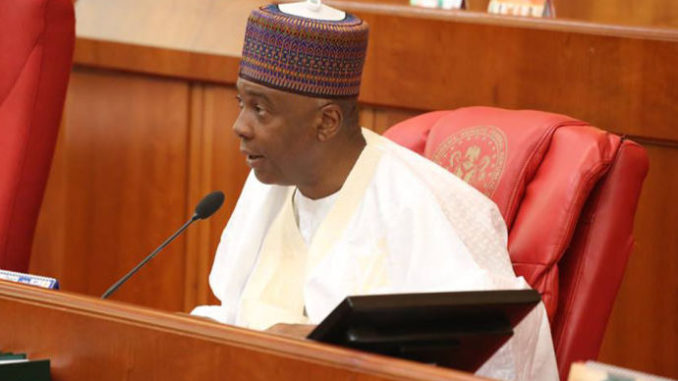
President of the Senate, Dr. Abubakar Bukola Saraki, has stated that Senate’s amendment of the Act that establishes the Compulsory Universal Basic Education, will provide all 36 States of Nigeria with needed funds to enhance the quality of education in the country.
In a statement by his Special Adviser on Media and Publicity, Yusuph Olaniyonu, Saraki said that for many years, many States had been unable to access the intervention funds from the Universal Basic Education Commission (UBEC), due to their inability to pay the 50 per cent matching grant prescribed by the Act.
The Senate President stated that the Upper Chamber’s amendment of the Bill was in-line with its commitment to ensure that education is improved at all levels across the country.
“Let’s get this clear,” the Senate President said, “As things stand, with over 10.5 million out of school children in the country, most states across the Federation cannot meet the required commitment of 50 per cent to access their UBEC funds.
“There is absolutely no point having over N60 billion of basic education funds lying idle, because the States — due to other necessary commitments — cannot provide the counterpart funding for UBEC.
“This is why the Senate amendment is a downward review from 50 per cent to 10 per cent. What we are doing is telling the states that ‘Look, education is important, we know that you cannot commit the full 50 per cent to UBEC, however, if you can bring 10 per cent of the counterpart funds, you will be able to access this money to improve the quality of basic education.
“This will go a long way in taking many more of our children off the streets and back in the classrooms where they belong,” Saraki said.
On his part, the Senator representing Sokoto North, Senator Aliyu Wammako, the sponsor of the Bill, has stated that the Senate’s amendment will ease pressure on states in accessing funds for infrastructure development.
Wamakko, who is the Chairman of the Senate Committee on Basic and Secondary Education, stated that the Compulsory, Free, Universal Basic Education Act of 2004, was amended with a clause that will make primary and secondary education free and compulsory across the country.
“It seeks to increase the block grant contribution of the Federal Government to education,” the Senator said, “Just as it seeks to reduce the contribution of the state governments.”
The former Governor of Sokoto State also emphasized that the two per cent budgetary allocation to the Universal Basic Education by the Central Government “is now increased to three per cent.”
In the past, many states across the federation have blamed their inability to access their UBEC funds on the compulsory payment of 50 per cent matching grants.
The UBE scheme came into effect in 2005 in order to usher in free and qualitative education to all children in public primary and junior secondary schools, by providing them with modern school facilities as well as ensuring the availability of qualified teachers.